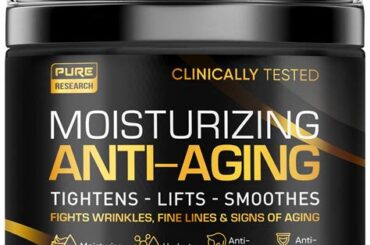Acne: Causes and Effective Treatments
Acne is a common skin condition that affects millions of people worldwide. It is characterized by the presence of pimples, blackheads, and whiteheads on the face, chest, and back. While it is prevalent during adolescence due to hormonal changes, acne can also affect adults of all ages. In this blog post, we will explore the various causes of acne and discuss effective treatments to help manage and prevent breakouts.
Causes of Acne:
1. Hormonal Imbalance: Hormonal fluctuations, especially during puberty, pregnancy, or menopause, can lead to an increase in oil production and clogged pores, resulting in acne breakouts.
2. Excessive Oil Production: The sebaceous glands produce an oily substance called sebum, which helps keep the skin moisturized. However, excessive sebum production can contribute to clogged pores and the development of acne.
3. Bacterial Infections: The bacteria known as Propionibacterium acnes can multiply in clogged pores, leading to inflammation and the formation of acne.
Effective Treatments for Acne:
1. Topical Medications: Over-the-counter creams, gels, and lotions containing ingredients like benzoyl peroxide, salicylic acid, or retinoids can help unclog pores, reduce inflammation, and kill bacteria associated with acne.
2. Prescription Medications: In severe cases, dermatologists may prescribe stronger medications, such as oral antibiotics, hormonal therapies, or isotretinoin, to control acne.
3. Lifestyle and Skincare Tips: Maintaining a consistent skincare routine, avoiding harsh cleansers or scrubbing the face too vigorously, and using non-comedogenic makeup and sunscreen can all contribute to managing and preventing acne breakouts.
In conclusion, understanding the causes of acne is crucial for finding effective treatments and managing this common skin condition. By addressing hormonal imbalances, controlling oil production, and combating bacterial infections, along with implementing a targeted skincare routine, individuals can take proactive steps towards achieving clearer, healthier skin.
Dry Skin: Causes and Remedies to Hydrate Skin
Having dry skin can be uncomfortable and frustrating. It can make your skin feel tight, itchy, and flaky, and it can even lead to more serious skin conditions if left untreated. In this blog post, we will discuss the causes of dry skin and provide some effective remedies to hydrate and nourish your skin.
There are several factors that can contribute to dry skin. One of the primary causes is a lack of moisture in the air, especially during the winter months when the air tends to be drier. Additionally, hot showers or baths, harsh soaps and cleansers, and certain medications can strip the skin of its natural oils, causing it to become dry and dehydrated.
Fortunately, there are several remedies that can help hydrate and nourish your skin. Firstly, it’s important to moisturize regularly using a high-quality moisturizer that is suitable for your skin type. Look for moisturizers that contain ingredients such as hyaluronic acid, glycerin, or ceramides, as these help to lock in moisture and create a barrier to prevent water loss from the skin.
- Drink plenty of water throughout the day to keep your body and skin hydrated from within.
- Avoid long, hot showers or baths as they can strip the skin of its natural oils. Opt for lukewarm water instead.
- Use gentle cleansers that are free from harsh chemicals and fragrances, as these can further irritate and dry out the skin.
- Consider using a humidifier in your home, especially during the winter months, to add moisture to the air.
In addition to these remedies, it’s important to avoid habits that can exacerbate dry skin. Avoid excessive sun exposure, as the sun can further dehydrate the skin. If you do spend time outdoors, always wear sunscreen and protective clothing to shield your skin from harmful UV rays. Additionally, it’s important to avoid using products that contain alcohol or other drying ingredients.
| Causes of Dry Skin | Remedies to Hydrate Skin |
|---|---|
| Lack of moisture in the air | Moisturize regularly using a suitable moisturizer |
| Hot showers or baths | Avoid long, hot showers and use lukewarm water |
| Harsh soaps and cleansers | Use gentle cleansers free from harsh chemicals |
| Certain medications | Consider using a humidifier in your home |
By understanding the causes of dry skin and implementing these remedies, you can help hydrate and nourish your skin, leading to a healthier and more comfortable complexion. Remember to always consult with a dermatologist if you have persistent dry skin or if your symptoms worsen.
Eczema: Understanding the Causes and Managing Symptoms
Eczema is a common skin condition that affects millions of people worldwide. It is characterized by dry, itchy, and inflamed skin that can be quite uncomfortable and distressing. Understanding the causes and managing the symptoms of eczema is crucial for those who suffer from this condition.
Causes of Eczema
Eczema is believed to be caused by a combination of genetic and environmental factors. People with a family history of allergies or asthma are more likely to develop eczema. Exposure to certain triggers such as irritants, allergens, or changes in weather can also lead to eczema flare-ups.
Managing Eczema Symptoms
While there is no cure for eczema, there are several ways to manage its symptoms and prevent flare-ups. It is important to moisturize the skin regularly using a gentle, fragrance-free moisturizer to keep it hydrated. Avoiding triggers such as harsh soaps, detergents, and irritating fabrics can also help alleviate symptoms. Additionally, using topical corticosteroids or other prescribed medications as directed by a dermatologist can provide relief from inflammation and itching.
Content-Rich Tips
- Avoid scratching the affected areas to prevent further damage and infection.
- Keep the skin cool and well-hydrated by taking cool showers and using humidifiers.
- Identify and avoid personal triggers such as certain foods, pollen, or stress.
- Wear loose-fitting, breathable clothing made from soft fabrics like cotton.
Table: Topical Medications for Eczema
| Name | Strength | Usage |
|---|---|---|
| Hydrocortisone | 0.5% | Mild eczema symptoms |
| Tacrolimus | 0.1% | Chronic or severe eczema |
| Pimecrolimus | 1% | Facial or genital eczema |
In conclusion, understanding the causes of eczema and finding effective ways to manage its symptoms is essential for individuals dealing with this skin condition. By taking proper care of the skin, avoiding triggers, and seeking professional guidance, it is possible to reduce the discomfort and improve the quality of life for eczema sufferers.
Hyperpigmentation: Ways to Reduce Dark Spots
Hyperpigmentation refers to the darkening of certain areas of the skin, often caused by an overproduction of melanin. This condition can be triggered by various factors, including sun exposure, hormonal changes, inflammation, and skin injuries. While hyperpigmentation is not harmful, it can be a source of self-consciousness for many individuals. Fortunately, there are several effective ways to reduce dark spots and even out the skin tone.
1. Protect Your Skin from the Sun: One of the primary causes of hyperpigmentation is sun exposure. To prevent further darkening of the spots, it’s crucial to protect your skin from harmful UV rays. Apply a broad-spectrum sunscreen with an SPF of 30 or higher every day, even on cloudy days. Additionally, wear protective clothing, such as hats and long-sleeved shirts, and seek shade during peak sun hours.
2. Use Topical Treatments: There are various topical treatments available that can help reduce dark spots and lighten the skin. Look for products containing ingredients like hydroquinone, vitamin C, kojic acid, niacinamide, or retinoids. These ingredients work by inhibiting melanin production, promoting skin cell turnover, and reducing pigmentation. Always consult with a dermatologist to find the best treatment option for your specific needs.
3. Try Chemical Peels: Chemical peels involve the application of a solution to the skin, which causes the outermost layer to peel off. This process helps to improve hyperpigmentation by stimulating new skin cell growth and exfoliating the pigmented cells. Superficial peels containing gentle acids like glycolic acid or salicylic acid can be done at home, but deeper peels should be performed by a professional.
- 4. Opt for Laser Treatments: Laser therapy is a popular option for reducing dark spots caused by hyperpigmentation. This treatment uses concentrated beams of light to target and break down the excess melanin in the skin. Laser treatments can be effective in treating larger areas of pigmentation or stubborn dark spots that don’t respond well to other methods.
- 5. Maintain a Healthy Skincare Routine: Consistency is key when it comes to reducing hyperpigmentation. Establish a skincare routine that includes gentle cleansing, exfoliating, and moisturizing. Look for products that are specifically formulated for addressing hyperpigmentation, and be patient as results may take time to show.
- 6. Seek Professional Advice: If your hyperpigmentation is severe or doesn’t improve with home remedies, it’s essential to consult a dermatologist. They can assess your skin condition, provide a proper diagnosis, and recommend suitable treatments or procedures tailored to your specific needs.
| Factors That Can Cause Hyperpigmentation: | Ways to Reduce Dark Spots: |
|---|---|
| Excessive sun exposure | Protect your skin using sunscreen and seek shade |
| Hormonal changes | Consult with a dermatologist for hormonal treatment options |
| Inflammation or skin injuries | Use topical treatments and consider professional procedures |
In conclusion, hyperpigmentation can be a common skin concern, but with the right approach, it is possible to reduce dark spots and achieve a more even skin tone. Remember to protect your skin from the sun, incorporate topical treatments into your skincare routine, consider professional options like chemical peels or laser treatments, and consult a dermatologist for personalized advice. With patience and consistency, you can successfully address hyperpigmentation and regain confidence in your skin.
Rosacea: Tips for Soothing Redness and Flare-ups
Rosacea is a common skin condition that affects millions of people worldwide. It is characterized by redness, inflammation, and occasional flare-ups. While there is no cure for rosacea, there are several tips and tricks that can help soothe redness and manage symptoms. By implementing these strategies into your skincare routine, you can minimize the impact of rosacea on your daily life.
Avoid Triggers: One of the key aspects of managing rosacea is identifying and avoiding triggers that can aggravate your symptoms. Common triggers include exposure to sunlight, hot beverages, spicy foods, alcohol, and extreme temperatures. By keeping a diary of your flare-ups and identifying patterns, you can pinpoint the triggers that worsen your symptoms and make necessary adjustments to your lifestyle.
Gentle Skincare Routine: When it comes to rosacea, less is often more. Opt for gentle skincare products that are specifically formulated for sensitive skin. Look for cleansers, moisturizers, and sunscreens that are free from harsh ingredients such as fragrances, alcohol, and excessive exfoliants. Additionally, try to avoid using products that require vigorous rubbing or scrubbing, as this can further irritate your skin.
Protection from the Sun: Sun exposure is a common trigger for rosacea flare-ups. To protect your skin, always wear sunscreen with a high SPF, even on cloudy days. Choose physical sunscreens that contain zinc oxide or titanium dioxide, as they are less likely to cause irritation. Additionally, seek shade and wear protective clothing, such as wide-brimmed hats and sunglasses, to minimize direct sun exposure.
Temperature Control: Extreme temperatures, both hot and cold, can exacerbate rosacea symptoms. To manage redness and flare-ups, be mindful of your surroundings and make necessary adjustments. Use lukewarm water when cleansing your face and avoid hot showers or baths. In colder weather, protect your skin by wearing a scarf or face mask to prevent exposure to cold air and wind.
Stress Management: Stress and anxiety can trigger rosacea flare-ups in some individuals. Therefore, it is crucial to develop effective stress management techniques to keep your symptoms at bay. Regular exercise, deep breathing exercises, yoga, and meditation are all effective ways to reduce stress levels. Experiment with different techniques to find what works best for you.
To summarize, rosacea can be a frustrating and often chronic condition, but by implementing these tips and strategies into your skincare routine, you can effectively soothe redness and manage flare-ups. Remember to avoid triggers, use gentle skincare products, protect your skin from the sun, control temperatures, and manage stress. With a consistent and tailored approach, you can minimize the impact of rosacea on your daily life and achieve a healthier, calmer complexion.
Frequently Asked Questions
Q1: What are the causes of acne?
A1: Acne is caused by factors such as excess oil production, clogged pores, bacteria, hormonal changes, and certain medications.
Q2: What are some effective treatments for acne?
A2: Effective treatments for acne include over-the-counter creams and cleansers, prescription medications, chemical peels, and laser therapy.
Q3: What are the causes of dry skin?
A3: Dry skin can be caused by factors such as cold weather, low humidity, excessive bathing or showering, harsh soaps, and certain medical conditions.
Q4: What are some remedies to hydrate dry skin?
A4: Remedies to hydrate dry skin include using a moisturizer regularly, avoiding hot showers, using gentle cleansers, using a humidifier, and drinking plenty of water.
Q5: What are the causes of eczema?
A5: The exact cause of eczema is unknown, but factors such as genetics, abnormal immune system responses, environmental triggers, and certain allergies can contribute to its development.
Q6: How can symptoms of eczema be managed?
A6: Symptoms of eczema can be managed by moisturizing the skin, avoiding irritants and allergens, taking lukewarm showers, using mild soaps, and using prescribed medications.
Q7: What are some ways to reduce dark spots caused by hyperpigmentation?
A7: Ways to reduce dark spots caused by hyperpigmentation include using topical creams containing ingredients like hydroquinone or retinoids, undergoing chemical peels or microdermabrasion, and using sunscreen to protect the skin from further sun damage.
Q8: What are some tips for soothing redness and flare-ups caused by rosacea?
A8: Some tips for soothing redness and flare-ups caused by rosacea include avoiding triggers such as spicy food and alcohol, using gentle skincare products, protecting the skin from sun exposure, and using prescribed medications or topical creams.





